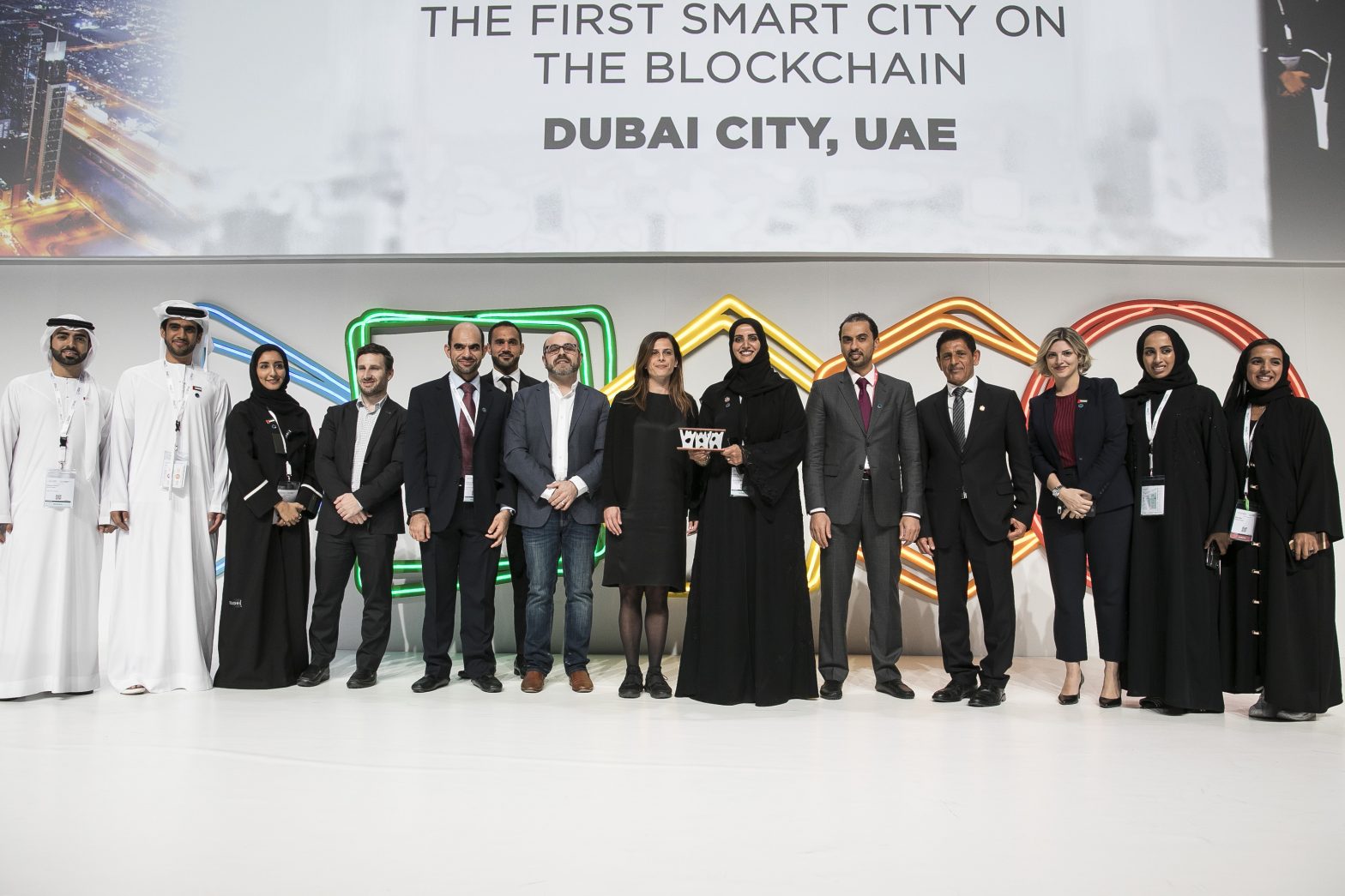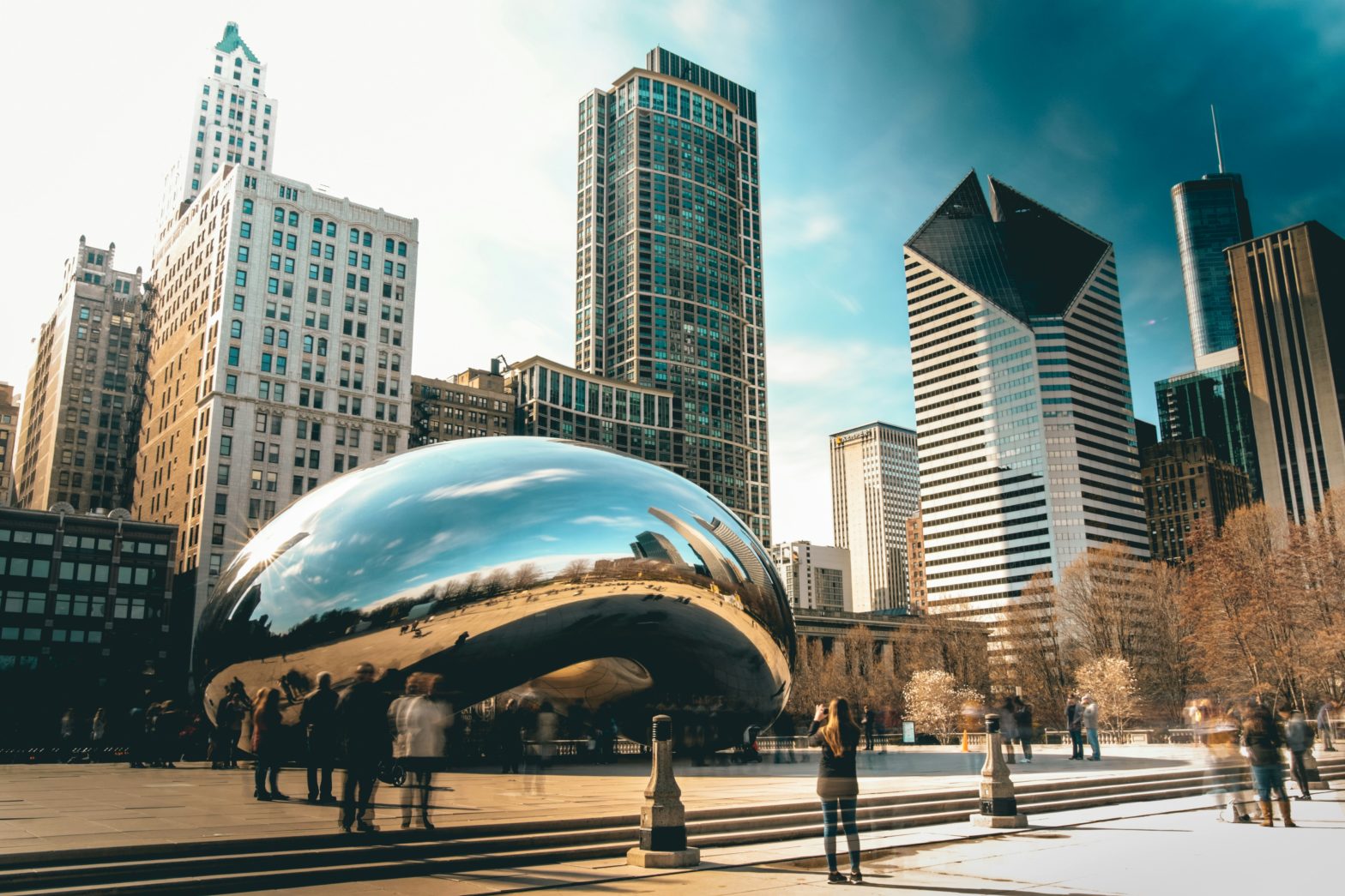
Photo: 2Y8A0559
Dubai named Smart City 2017
16 November 2017
by Nick Michell
The city of Dubai, United Arab Emirates, has been given the Smart City of 2017 award at the seventh edition of the Global Smart City Awards, which took place during the Smart City Expo World Congress in Barcelona.
“We are very proud of this accomplishment and believe that this honour is a true reflection, not just of Smart Dubai’s achievements, but a testament to the UAE’s success in creating the future today,” Dr Aisha Bin Bishr, Director-General of the Smart Dubai office, told Cities Today. “The award felicitates our journey towards making Dubai the first blockchain-powered government in the world by 2020. This recognition encourages us to continue delivering exceptional value to the people of Dubai in our goal to build the happiest smart city on earth.”
Dubai’s project to adopt blockchain technology at a city-scale earned it the award. The jury valued its effort to lead global thinking and deployment of blockchain technology in applicable government services as well as its commitment to support the creation of a blockchain industry empowering start-ups and businesses.
“While blockchain is still experimental all over the world, our leadership has long aspired to firmly establish the UAE as a world leader in the industries of the future,” said Wesam Lootah, CEO of Smart Dubai Government. “Furthermore, we are currently working on another initiative, issuing the first set of standards for employing blockchain technology in government.”
In the Innovative Idea category, the winner was Marketplace.city, a platform allowing public sector innovators to find, research and implement new technological solutions. The platform focuses on city needs and outcomes, recommending relevant products, solutions and case studies implemented in other cities.
Buenos Aires’ food care programme, Cuidemos los alimentos, won the Project category for its effort to implement a sustainable food policy raising community awareness on food waste and changing consumption patterns through the implementation of recycling initiatives and training in schools.
The Amsterdam Circular Innovation Programme, received the Circular Economy award for developing a policy at a city level integrating different fields such as local production of sustainable and seasonal food, local production of electricity, and improvement of the recycling chain waste cycle.
The Safe Cities award went to Shenzhen’s Global-First All-Scenario Intelligent Transportation Solutions or “Traffic Brain”. The project uses a Big Data platform, a data resource pool and a deep learning system capable of identifying data and reducing traffic congestion and accidents thus improving public safety.
SEAT’s Easy Urban Mobility: Towards the Digital World project earned the Mobility award for an innovative concept that puts shared and connected mobility services at its core. It incorporates the scope of car sharing and the possibilities afforded by the sharing economy, while aligning with the undergoing digital transformation process.
The last category, Data & Tech project, rewarded Yanbu’s Royal Commission Smart City, Saudi Arabia, for aiming to improve citizens’ quality of life through initiatives such as the deployment of a new fibre network, building a smart lighting control system, improving mobility, creating a big data platform, and developing an Integrated Communication Platform (ICP).







